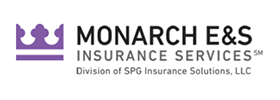Are you aware of the flood risks facing Port Charlotte homeowners? With rising water levels and unpredictable storms, understanding these dangers is crucial for safeguarding your property. In this article, we will cover flood risks in Port Charlotte, how to assess them, and effective mitigation strategies to protect your home. By engaging with this content, you will gain valuable insights into the need for flood insurance and how proper infrastructure and construction can help you manage these risks effectively. Don’t let uncertainty leave your family and home vulnerable; contact us to learn more.
Understand the Flood Risks in Port Charlotte
Understanding the flood risks in Port Charlotte is essential for protecting your home and assets. You will learn about historical flood events that have affected the area and examine current flood risk zones, including various floodplains and flood zones. Additionally, factors like storm surge and climate change contribute to these risks, impacting your home insurance needs.
Identify Historical Flood Events Impacting the Area
In Port Charlotte, understanding historical flood events is crucial for assessing your property’s vulnerability to this hazard. Past incidents, including hurricanes and heavy rainfall, have demonstrated the area’s susceptibility to flooding, which may lead to extensive damage. Being informed about these events can help you navigate the options available under the National Flood Insurance Program, ensuring you have adequate protection in place against potential future flooding.
Analyze Current Flood Risk Zones in Port Charlotte
Port Charlotte faces significant risks from coastal flooding, influenced by factors like climate change and storm patterns. The Federal Emergency Management Agency (FEMA) designates specific flood zones that can help you understand your property’s vulnerability and the elevation required for flood insurance policies. Awareness of these current flood risk zones is vital for ensuring you have the right coverage to protect your home against potential flooding risks.
Review Factors Contributing to Increased Flood Risks
Several factors contribute to the increasing flood risks in Port Charlotte, making a comprehensive risk assessment vital for homeowners. The rising sea level poses a significant threat, as even minor increases can lead to more frequent flooding events. Additionally, storm patterns influenced by climate change can result in heavier rainfall, necessitating a robust flood insurance policy to protect your property from the potential impacts of a FEMA flood designation.
Understanding the flood risks in Port Charlotte sets the stage for what comes next. A thorough flood risk assessment will reveal what you need to protect your home and family from nature’s unpredictable paths.
Conducting a Comprehensive Flood Risk Assessment in Port Charlotte
Conducting a Comprehensive Flood Risk Assessment in Port Charlotte
Begin by gathering data on local topography and hydrology, as understanding these factors is crucial in assessing flood risks. Evaluate infrastructure within your community to identify its vulnerability to flooding. Lastly, consider community preparedness and emergency planning to better understand how these elements contribute to effective flood control and influence your insurance policy needs.
Gather Data on Local Topography and Hydrology
Gathering data on local topography and hydrology is an essential step in assessing flood risks specific to your property in Port Charlotte. This information helps you identify how your land’s elevation and natural water flow can influence flooding potential. For example, properties located near low-lying areas or bodies of water may require more comprehensive flood insurance coverage due to their increased vulnerability during heavy rains or storm surges.
Evaluate Infrastructure and Its Vulnerability to Flooding
Evaluating the infrastructure in Port Charlotte is critical for understanding its vulnerability to flooding. You should examine how roads, drainage systems, and utilities are designed and maintained, as poorly constructed infrastructure can exacerbate flooding during heavy rains or storm surges. By identifying weak points in the local infrastructure, you can make informed decisions about additional flood insurance coverage to protect your property from potential water damage.
Assess Community Preparedness and Emergency Planning
Assessing community preparedness and emergency planning in Port Charlotte is crucial for minimizing flood risks. You should familiarize yourself with local evacuation routes and emergency services available in your area, as these resources can significantly impact response times during flooding events. Engaging with community programs focused on disaster preparedness will empower you to implement family safety plans, further enhancing your ability to respond effectively in case of a flood, ultimately ensuring you and your property remain protected.
The floods we face are influenced by more than just local conditions. Climate change looms on the horizon, altering the landscape of risk in Port Charlotte.
The Role of Climate Change in Flood Risks for Port Charlotte
The rising sea levels in Port Charlotte significantly affect local flooding, posing a greater risk to your property. Increased precipitation patterns further exacerbate these challenges, leading to frequent and severe flooding events. Additionally, long-term environmental changes influence flood severity, highlighting the importance of understanding these factors to ensure comprehensive flood insurance coverage for your home.
Investigate How Rising Sea Levels Affect Local Flooding
Rising sea levels pose a significant threat to homes in Port Charlotte, drastically increasing the likelihood of flooding. As ocean waters continue to swell, even minor storm surges can lead to extensive water damage, particularly in low-lying neighborhoods. It is essential to consider these changes when assessing your flood insurance needs, as this understanding will help you protect your property effectively:
- Recognize that storm intensity is often linked to sea-level rise.
- Evaluate your property’s elevation relative to local water bodies.
- Stay informed about potential future changes to flood maps and insurance requirements.
Examine the Impact of Increased Precipitation Patterns
Increased precipitation patterns present a notable challenge for homeowners in Port Charlotte, as they lead to heavier rainfall that significantly raises the risk of flooding. These changes can overwhelm drainage systems and water management efforts, resulting in rapid water accumulation around your property. To safeguard your home, it’s critical to assess how these patterns affect your location specifically and to ensure your flood insurance policy adequately reflects potential risks such as flash flooding or prolonged heavy rain:
- Monitor local rainfall trends and historical data.
- Evaluate your property’s drainage solutions.
- Consult with local insurance experts for appropriate coverage options.
Discuss Long-Term Environmental Changes Influencing Flood Severity
Long-term environmental changes significantly influence the severity of floods in Port Charlotte, making it essential for you to stay informed. These changes include altered weather patterns, shifts in ecosystems, and increased storm intensity that can lead to heightened flooding risks. Understanding how these factors play a role in local flood dynamics allows you to evaluate your flood insurance needs more effectively, ensuring adequate protection for your property.
Floods come with a heavy cost, fueled by changing weather patterns. To face this growing threat, it’s crucial to explore the strategies that can safeguard our homes and community.
Mitigation Strategies for Flood Risks in Port Charlotte
Mitigation Strategies for Flood Risks in Port Charlotte
Implementing effective drainage solutions is vital for urban areas to reduce flooding risks. Promoting flood-resilient construction practices further protects homes from water damage. Additionally, encouraging community involvement in preparedness programs enhances overall safety. Each strategy plays a crucial role in safeguarding your property against potential floods in Port Charlotte.
Implement Effective Drainage Solutions for Urban Areas
Implementing effective drainage solutions in urban areas of Port Charlotte is essential for managing flood risks effectively. You should consider upgrading existing drainage systems to ensure they can handle heavy rainfall and storm surges. Investing in improvements such as pervious pavement, swales, and retention ponds will direct excess water away from properties, reducing the chance of flooding and protecting your home from water damage.
Promote Flood-Resilient Construction Practices
Promoting flood-resilient construction practices can significantly reduce the risk of water damage to your property in Port Charlotte. Implementing strategies such as elevating homes above base flood elevation levels and using water-resistant materials can enhance your home’s protection against flooding. Additionally, incorporating features like flood vents and proper drainage systems helps to manage excess water effectively, making your property more resilient in the face of potential flood risks:
- Elevate homes above flood levels to minimize water exposure.
- Use water-resistant materials for building and renovations.
- Design and install effective drainage systems to handle stormwater.
Encourage Community Involvement in Preparedness Programs
Encouraging community involvement in flood preparedness programs in Port Charlotte is essential for enhancing safety and resilience against flood risks. By participating in local initiatives, you can learn valuable skills and strategies for protecting your home and family during flooding events. Whether it’s attending training sessions or volunteering for local awareness campaigns, your active engagement can significantly contribute to a more informed community.
| Preparation Activity | Description | Benefits |
|---|---|---|
| Training Sessions | Attend workshops focused on flood response and safety measures. | Gain practical knowledge to act effectively during emergencies. |
| Community Clean-ups | Participate in cleaning local drainage areas to prevent flooding. | Help reduce flood risks while improving community well-being. |
| Evacuation Drills | Join local drills to familiarize yourself with evacuation routes. | Enhance preparedness and confidence in crisis situations. |
Mitigation strategies are vital, but the journey doesn’t end there. Stay informed and prepared with the right resources for ongoing flood risk assessment in Port Charlotte.
Resources for Ongoing Flood Risk Assessment in Port Charlotte
Understanding flood risks in Port Charlotte involves knowing the resources available for ongoing assessment. You will identify local and federal agencies that provide essential support in disaster preparedness and response. Explore technological tools that offer real-time flood monitoring to keep you informed. Additionally, educational programs for residents will enhance your flood preparedness and empower you to take proactive measures.
Identify Local and Federal Agencies Providing Support
To effectively navigate flood risks in Port Charlotte, it is essential to connect with local and federal agencies that provide vital support. Organizations such as the Charlotte County Emergency Management and the Federal Emergency Management Agency (FEMA) offer resources, guidance, and updates on flood preparedness, response strategies, and recovery efforts. Engaging with these agencies allows you to access critical information and tools that can help you make informed decisions about your flood insurance and overall safety.
Explore Technological Tools for Real-Time Flood Monitoring
Utilizing technological tools for real-time flood monitoring can significantly enhance your awareness of flood risks in Port Charlotte. Applications and online platforms provide valuable updates regarding weather conditions, flood warnings, and changes in local water levels. By staying connected to these resources, you can make informed decisions about your property’s safety and take necessary precautions in a timely manner:
- Access real-time flood alerts through mobile apps.
- Monitor local weather patterns using online resources.
- Stay updated with information from FEMA and local agencies.
Discuss Educational Programs for Residents on Flood Preparedness
Participating in educational programs focused on flood preparedness is key to protecting your home and family in Port Charlotte. Local organizations offer workshops that cover important topics, including emergency planning, evacuation routes, and the specifics of flood insurance. By engaging in these programs, you will gain practical skills and knowledge, enabling you to respond effectively during flooding events and make informed decisions about your property’s safety.
The landscape of Port Charlotte changes with each storm, revealing new truths about flood risks. As we look ahead, it is vital to consider how to better manage these dangers and protect our community.
Future Considerations for Flood Risk Management in Port Charlotte
To effectively manage flood risks in Port Charlotte, you must analyze trends in urban development and floodplain management. Upcoming legislation will shape flood risk policies, making it important to stay informed. Additionally, investigating collaborative efforts for sustainable practices can enhance community resilience. Each of these areas will provide you with valuable insights into improving your flood protection strategy.
Analyze Trends in Urban Development and Floodplain Management
As the Port Charlotte area continues to grow, analyzing trends in urban development and floodplain management becomes crucial for homeowners like you. Increased construction can alter natural drainage patterns and exacerbate flooding risks, making it essential to stay informed about local land use regulations and planning initiatives. Understanding how developments impact flood zones will empower you to make informed decisions regarding your flood insurance needs and to advocate for sustainable practices that reduce future flood vulnerabilities.
Review Upcoming Legislation Impacting Flood Risk Policies
Staying informed about upcoming legislation that affects flood risk policies is vital for homeowners in Port Charlotte. New regulations may introduce stricter rules regarding floodplain management, which can influence your flood insurance rates and requirements. By keeping track of these changes, you can better prepare your property and mitigate potential risks, ultimately ensuring that you have the necessary coverage to protect your assets in an area susceptible to flooding.
Investigate Collaborative Efforts for Sustainable Practices
Investigating collaborative efforts for sustainable practices is vital in addressing flood risks in Port Charlotte. By working together with local communities, government agencies, and environmental organizations, you can actively participate in initiatives aimed at restoring natural ecosystems like wetlands and improving drainage systems. These practices not only reduce flooding but also enhance the resilience of your neighborhood against climate-related challenges, ensuring proper protection for your home and assets.
Ready to Protect Your Port Charlotte Home? Contact Arnold Insurance Today
Port Charlotte faces unique flood risks due to rising sea levels, changing precipitation patterns, and climate change impacts. From analyzing historical flood events to implementing mitigation strategies, understanding these risks is crucial for protecting your property. Don’t wait until it’s too late to secure proper flood protection. Call Arnold Insurance at (941) 214-8668 to discuss your flood insurance options and get expert guidance from your local Port Charlotte insurance specialists. Our experienced team will help you navigate flood zones, coverage options, and ensure your home has the protection it needs.




















